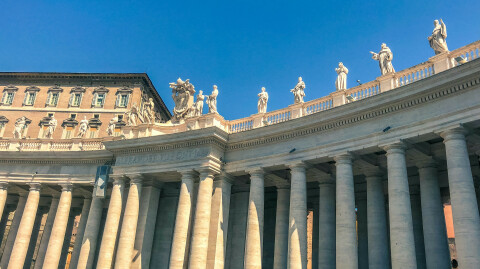TLDR: We find enough theology in Ruth 1:1 to write entire books. Luckily, you don’t need to read entire books. All you need is to join my Bible Musings on Tuesday nights.
I have loved my studies on the book of Ruth, which we started two weeks ago. The first class was an introduction to the entire short book, which included teachings on the context, the possible date of composition, the language of the original book, the possible author, the place of the book in the liturgical life of Israel, etc. During our second class, we did an in-depth study of the first six verses of chapter 1. This blog is too short to discuss all six verses, so I will give you some of the highlights of the first verse, in hopes that I will whet your appetite enough for you to join us on April 5, at 6:30 pm in the Price Fellowship Hall. Please do not worry if you have missed the first two sessions of this class. We always start with a brief summary of what came before, and I can email you copies of the materials covered in other classes in advance. Send me an e-mail to and I will do the rest.
The Book of Ruth begins with a provocative statement meant to arouse strong emotions in the reader. “In the days when the judges ruled, there was a famine in the land, and a certain man of Bethlehem in Judah went to live in the country of Moab, he and his wife and two sons.” You may begin to wonder why this statement is so provocative. Here are a few reasons:
- The verse begins with a mention of the times of the “Judges.” This will automatically lead the readers to remember a really dark time in the history of Israel, after the death of Joshua, from 1350 to 1052 BCE, when Saul became the first king of Israel. There were 14 judges or local chieftains in total in the 300-year-term. This was a time filled with bloody conflicts against Canaanites, Kushites, Moabites, Ammonites, Amalekites, Philistines, and others. We see a sequence of events the repeats itself often during these times: a. The Israelites break the Covenants with God. b. God withdraws favor from them leading to war defeats, famines, pestilence, social unrest, hunger, and other problems. c. A leader of the people leads them into repentance. d. God returns his blessing on the nation, which leads to a time of peace and prosperity. Sadly, the cycle then begins again when the people break the covenants one more time. (See Judges 2:21.) The book of Judges diagnoses the problem the following way, “In those days Israel had no king; everyone did as they saw fit.” (21:25.) These were chaotic, lawless, and violent times.
- Then we hear that there was a famine in Bethlehem. The mention of a famine in the same line as the word “Judges” leads the reader to assume that the covenant has been broken again, and God’s favor has been withdrawn. There is great irony that there should be famine in “The House of Bread” (Literal name for Bethlehem.) There is famine in a Promised Land supposed to be flowing with milk and honey. This heightens the story and leads to a number of theological questions about God, Covenant, Sin, and Repentance.
- Then we hear that “a certain man” moved his family to Moab. The fact that we don’t hear his name until later casts a shadow over the man. To make a very long argument very short, both Leviticus and Deuteronomy make the land the very gift of God to his people, and abandoning the land is akin to abandoning the Law and turning your back on God himself. Later the book will tell us that there were others who also faced famine and chose to stay. They tilled and worked the arid and desolate land until the skies were opened again and God blessed his people with a bountiful harvest. But this man did not trust God enough to stay. He acted in complete fear, leaving his patrimony at the first sight of trouble. To make matters worse, this man chose the worse possible place to relocate. Moab is the historical enemy of the nation and of God himself. Moab refused to provide bread and water for the people of God when they first came out of Egypt. They hired a Shaman to curse the nation as they traveled through their lands, and they led many Israelites astray by enticing them with cultic prostitution. These are bad actors, and this man left God and country to join them. This is apostacy and betrayal of God. He should have stayed and work, but he ran into enemy arms at the sight of trouble. He did not have sufficient faith in God’s might and God’s love, even though his very own name means, “God is Mighty” (Elimelech.) This in itself is a great irony.
The next few verses tell us what happened to this man and his two sons. They died in Moab, leaving the man’s wife (Naomi) and the sons’ wives (Orpah and Ruth) completely unprotected and alone during an extremely dangerous time for women. Those who know Leviticus and Deuteronomy will see in this fate a punishment from God. These men failed to be good husbands to the land and to their own wives, turning away from their patrimony and their God. They did not believe in God enough to stay, as other more righteous men did. Ultimately, their faithlessness caused their demise.
The story of Ruth has a happy ending, but at the end of Chapter 1, verse 1, all we see is darkness, lostness, mourning, and desolation. We see the natural consequences of sin and faithlessness. To hear the happy ending, you need to join us in class, where you will learn more than you ever thought you could learn about this beautiful short book.
I hope to see you here.
Blessings,
Fr. Roman+





